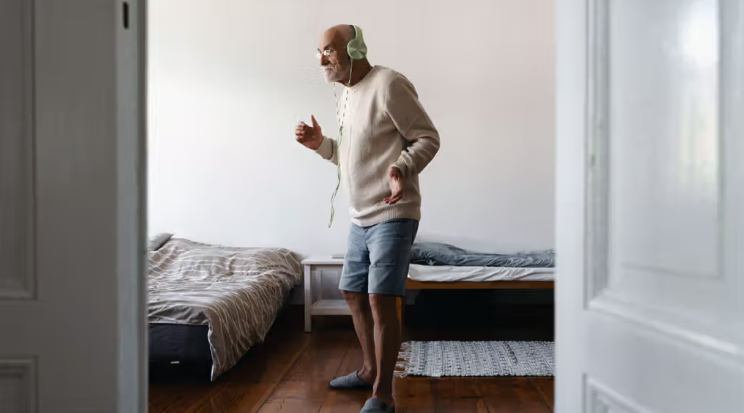Unsurprising study results
After reviewing this research, Alexander Solomon, MD, a surgical neuro-ophthalmologist and strabismus surgeon at Pacific Neuroscience Institute in Santa Monica, CA, not involved in this research, told MNT the results of the study are unsurprising and consistent with what he sees on a day-to-day basis in his clinic.
“Although most people’s first thought when it comes to vision is understandably our eyes, this portion of our vision is primarily devoted to focusing and detecting light from the environment with only a limited amount of processing,” Solomon explained.
“The brain takes these light signals and has to turn them into a cohesive image to understand, including identifying elements such as color, movement, and both object and facial recognition,” he pointed out.
“It isn’t hard to imagine that as the brain is compromised by a process like dementia, some portions that help process our vision are affected. This results in the loss of visual sensitivity — in this case, measured by processing speed and reaction time to a stimulus on either a blank or crowded background.”
– Alexander Solomon, MD
Solomon said he would like to see more clinical-driven characteristics correlated to the visual sensitivity testing results.
“For example, dementia is a broad category, and it would be good to see if specific types of dementia correlate more to decreased scores,” he detailed.
“Similarly, [the study authors] were relying on whether dementia was simply listed as a diagnosis on hospital inpatient records to state if a patient developed it, and having an actual clinician verifying and characterizing the diagnosis could be helpful to catch subtle cases and verify borderline ones,” Solomon cautioned.
Do vision problems always predict dementia?
MNT also spoke with Clifford Segil, DO, a neurologist at Providence Saint John’s Health Center in Santa Monica, CA, not involved in this study, commented that people who cannot see a triangle forming in a field of dots should see an eye doctor before seeing a brain doctor.
“Elderly patients with vision and hearing problems are frequently evaluated for dementia” where appropriate anyway, Segil said. Nevertheless, he noted that such issues are not always consistent with signs of cognitive decline.
“Patients with hearing loss often ask people to repeat themselves, which may be due to hearing loss more than dementia,“ noted Segil.
Similarly, “[p]atients [with] vision complaints often have issues recognizing people and faces, and sometimes this may be resolved with glasses or corrective surgeries,” he pointed out.
“This study noted out of 8,623 ‘healthy people’ about 6% (587) patients developed dementia,” he continued. “I would like to see some type of eye exam done on the 6% of these patients who developed dementia to make sure there was nothing wrong in front of their optic nerve or in their eyes,” Segil told us.

1 thought on “Could a simple eye test predict Alzheimer’s 12 years before symptoms show?”